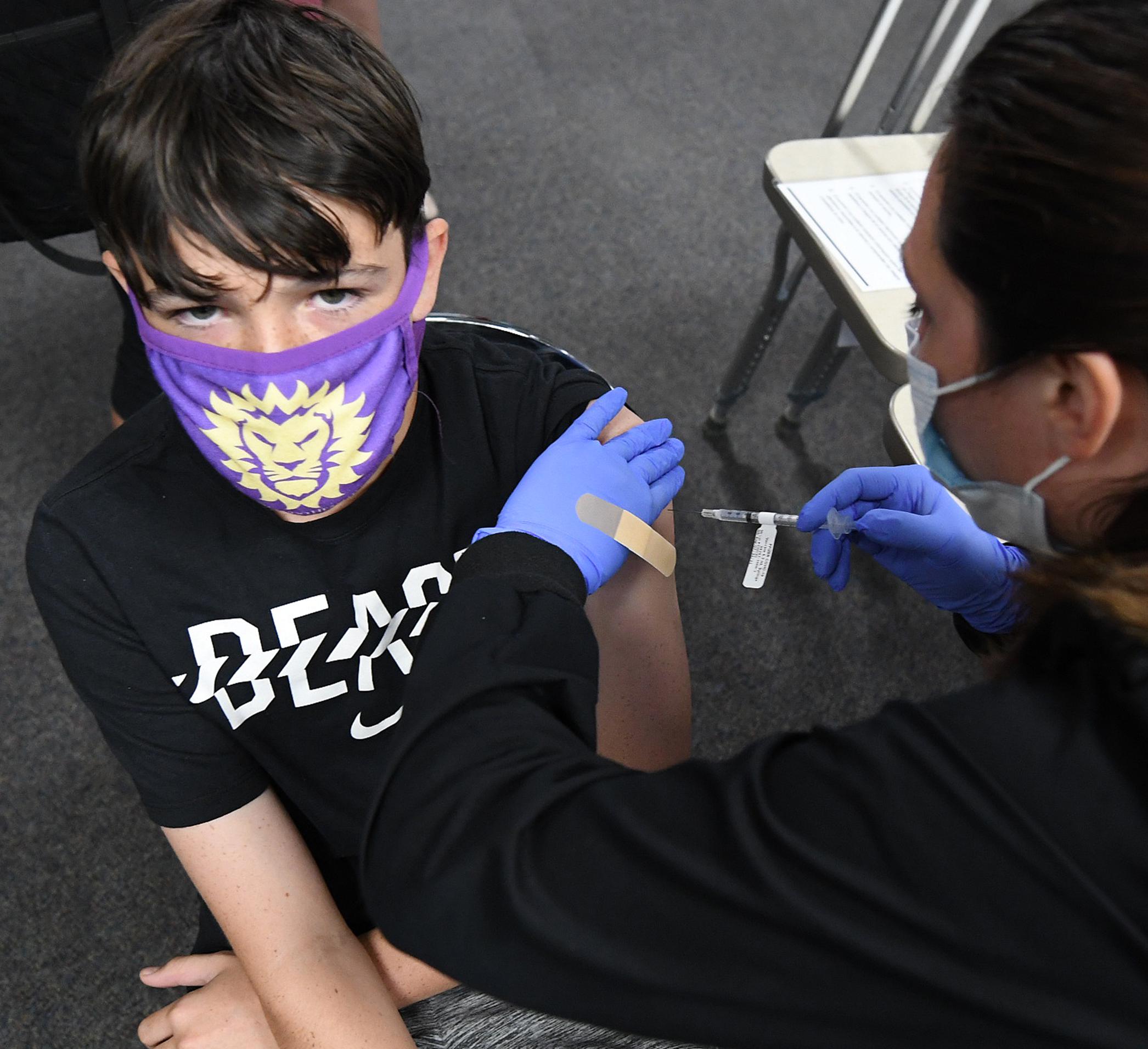If the ministers of health give the green light for the vaccination of 5- to 11-year-olds next week, Flanders wants to start with this quickly. The places where they will get their shot have not yet been determined.
–
While almost a quarter of the vaccinated Flemish people have received their booster shot against Covid-19, the Agency for Care and Health is making full preparations for the vaccinations of five to eleven-year-olds. In the coming week, the advice and decisions on this will follow each other quickly. The health ministers will make the final decision by next Friday at the latest.
‘If the advice is favourable, we can quickly start with the invitations,’ says Dirk Dewolf of Care and Health. ‘We can then carry out the first vaccinations early next year.’ This concerns a group of approximately 490,000 children. As with adults, the vaccine will not be mandatory.
The first ‘child vaccines’ are also expected to arrive next week. For Flanders, this concerns 186,000 doses, from pharmaceutical giant Pfizer. That modified its existing Comirnaty vaccine for children. Currently, the European Medicines Agency (EMA) has only approved that vaccine for use. It also concerns a vaccine with two shots, with three weeks in between.
Through the parents
The children will receive their invitation via a parent, by post and in the ‘e-box’: a digital mailbox that includes government documents. ‘Parents will of course be allowed to accompany their child to the vaccination,’ says Joris Moonens of Zorg en Gezondheid. ‘That immediately counts as their permission. If someone other than a parent comes with a child, they will have to bring written permission from the parents.’
The places where children will receive their injections have not yet been determined. Possibly that on a separate line and time in a vaccination center itself. 84 of these centers are still running. Another option is to vaccinate the children in a ‘child-friendly environment’. ‘It will also have to be easily accessible and located within the primary care zone of the residence,’ says Dewolf. ‘The decision on this is taken locally in the care councils, in consultation with the Op Groei Agency.’
If Flanders starts vaccinating young children in January, all first shots would have been taken by the end of February. By the end of March, the entire group may have been vaccinated. ‘This is of course subject to deliveries as announced,’ says Dewolf.
a lot of discussion
It also remains to be seen how many five- to eleven-year-olds (on the instructions of their parents) will accept their invitation. There is much debate about the vaccination of young children. Usually children do not become seriously ill from an infection with the corona virus. Vaccinating them in the first place can lead to a lower circulation of the virus, so that population groups that can become seriously ill end up in hospital or intensive care less often. A direct effect of immunity in children is that classes should close less quickly by a cluster of infections. No high-risk side effects have been identified to date in the more than five million American children who have received a Pfizer vaccine.
The omikron variant, which Sciensano expects to become dominant by early February, makes predictions about vaccine protection difficult – especially when it comes to children. Two shots of the current generation of vaccines would no longer adequately protect against that variant, of which at least thirty infections have currently been counted in our country. The decreased protection is shown by lab tests in South Africa and Germany, the results of which have yet to be confirmed.
– .


